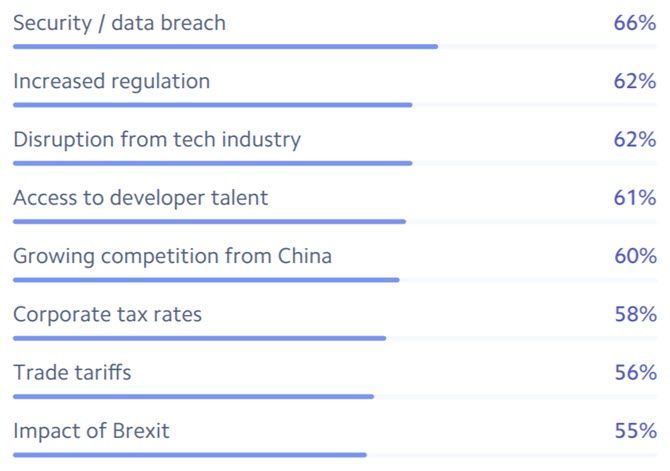
There are a lot of bloggers who self-describe as “journalists.” Unfortunately, the majority of them write articles that lack most of the fundamentals that make an article journalistic.
Before casting serious stones, it’s important to set the guidelines for what journalistic writing actually looks like. We’ll outline some common mistakes bloggers make, and look at a few examples of articles that fail the “good journalism” litmus test.
What Is Good Journalism?
The best guidelines for good journalism come from the American Press Association and their publication Principles of Journalism.
In 1997, a team of journalists worked for four years holding public forums, studying journalism history, an surveying journalists around the country. The group finally published nine principles of journalism they called a Statement of Shared Purpose.
Project for Excellence in Journalism (PEJ) Director Tom Rosenstiel and PEJ Senio Counselor Bill Kovach cowrote a book based on those principles, titled The Elements of Journalism.
There are nine principles of journalism in total, but in this article we’ll be focusing on the five most important ones.
1. Journalism’s First Obligation Is to the Truth
Journalists should work hard on “assembling and verifying facts.” The Statement of Share Purpose calls this a discipline because it takes immense discipline to take the time to verify facts. This is especially true if the facts turn out to disprove your own previously held beliefs.
As the Statement explains:
“Journalists should be as transparent as possible about sources and methods, so audiences can make their own assessment of the information.”
The best journalism identifies sources or research methods, and doesn’t try to misrepresent research findings to support a belief, by leaving out important facts.
One example of this is an article published on The Next Web that covered a report released by Stripe called “The Developer Coefficient,” which detailed how companies may not be fully leveraging their existing population of developers.
A source link to the actual report is never provided. Halfway through the article, the author begins opining about Brexit:
“This [lack of developer talent] is something that’s been made even more acute by the UK’s impending departure from the European Union. With the prospect of a hugely damaging hard Brexit, and an uncertain visa regime for EU-27 citizens, Britain has never looked more unattractive to foreign talent.”
This is odd, considering the report itself says the main takeaway from the report shouldn’t be lack of talent, but leveraging existing talent:
“This underscores the most important point about developers as force-multipliers: It’s not how many devs companies have; it’s how they’re being leveraged.”
If you read the actual study [PDF], you’ll see that Brexit is only mentioned once. And it’s at the very bottom of a list of reasons C-Level executives offered for which factors threatening the success of a business the most:

The top reasons were actually security and data breaches, increased regulation, and disruption from the tech industry.
Red flags: Lack of source links and a misrepresentation of facts.
2. Journalism’s First Loyalty Is to Citizens
Journalists must remain loyal to citizens, accurately reporting truths that serve citizen’s best interests, even if those interests go against the interests of the journalist’s own employer.
One example of a failure of this principle was Buzzfeed’s use of native advertising. Articles portrayed as news often became indistinguishable from advertisements:

It didn’t take long for the site to come within the crosshairs of journalistic watchdog groups. In 2016, British ad regulator ASA ruled that one of Buzzfeed’s posts breached UK advertising regulations.
It should come as no surprise, then, that in July of 2018, Buzzfeed News finally stripped away native advertising for news articles altogether.
Red flags: Articles that overtly (or even subtly) promote a specific brand without providing much evidence. Such articles often avoid doing any hard comparisons with any other brands at all.
3. Journalism’s Essence Is Discipline of Verification
Verification of information is something that has fallen by the wayside in recent years. We have Twitter and Facebook to blame for fake news—people can easily put forth all sorts of unverified claims as fact.
These get shared and forwarded as fact, until someone finally decides to verify:

The problem is that many bloggers often jump on the same bandwagon and write stories without properly verifying claims.
The APA describes the importance of verification for journalists.
“It called, rather, for a consistent method of testing information […] precisely so that personal and cultural biases would not undermine the accuracy of their work. The method is objective; not the journalist.”
The APA goes on to explain steps journalists should take to verify claims.
- Interviewing multiple witnesses
- Revealing as much as possible about your sources
- Asking for comments from both sides, especially for controversial issues
One of my own articles failed in this respect. Back in 2012, I’d read some claims made on forums published by former Mormons, and so decided pay one of my writers to do an article on weird Mormon beliefs:

This is why many bloggers fail. I paid a blogger a paltry fee to take my brief research and do a writeup. She did not interview Mormons, and it’s this lack of obtaining viewpoints from the opposite side that made this piece fail as a work of journalism. Many Mormons commented on the article, and it was a hard lesson to learn—but an important one.
Red flags: You can recognize this form of failed journalism when the quotes you read only come from one side of the controversy, or comments from the other side are immediately dismissed by the blogger.
4. Journalists Must Maintain Independence
Probably one of the hardest things for journalists to do is maintain independence from the story. Many people misunderstand this as meaning “neutrality,” but that’s not it. It’s a journalist’s ability to use “intellectual fairness” and fully inform the audience about both sides of an issue.
Even professional journalists fail here. There’s no clearer example of this than past US Presidential elections.
During the 2016 election, most mainstream news outlets believed Hillary Clinton had the election wrapped up. There was no chance that someone like Donald Trump could ever win. But on election night, once it became clear Donald Trump had actually won, the shock, anger, and disbelief became clear:
In the video above, at 6:00, one MSNBC journalist tries to correlate a 700-point drop in the stock market to Trump’s win. At 6:45, they deem Trump the “apparent” winner for Florida.
Around 7:20, an MSNBC journalist loudly makes an “uuugh” disgusted sound after announcing Trump’s growing lead. The 13:45 mark shows a CBC News panelist reacting to Trump’s win by saying “America’s religious values and moral center is also nonsense, just like the polls were.”
The same was true years earlier during President Obama’s re-election. Have a look at how FOX journalists responded when Obama won that election:
The Statement of Shared Purpose describes this as follows.
“While editorialists and commentators are not neutral, the source of their credibility is still their accuracy, intellectual fairness and ability to inform, not their devotion to a certain group or outcome.”
Politics is one area where even professional journalists break down and fail in their duty to adhere to the principles of journalism.
Red flags: Keep an eye out for emotionally-charged words like “terrible,” “tragedy,” or other words that invoke a powerful emotional response. When writers use this kind of language, it’s always to convey their own emotions rather than straight reporting of news.
5. Keep the News Comprehensive and Proportional
Biased language also comes into play in how writers sensationalize stories, or make their coverage of something extremely negative or positive.
The Statement of Shard Purpose describes how many journalists fail this principle.
“Inflating events for sensation, neglecting others, stereotyping or being disproportionately negative all make a less reliable map.”
What does this look like in the real world? Across the blogosphere, this is most common. Especially in coverage of heated debates, like the constant war between iPhone and Android advocates:
One example of this is an article on Cramber.com, where the author starts out by saying “I am not an Apple hater,” then proceeds to use language like the following throughout the article:
- ” …why the iPhone still beats Android are pathetic at best…”
- “…Not convincing at all…”
- “…it should be a no-brainer…”
- “…Apple goes through a tedious process..”
- “…has common sense just flown out the window…”
- “…Are you serious?…”
- “…It’s thievery…”
Journalism is about thoroughly exploring both sides of an argument in an unbiased way, and presenting the results of that research as thoroughly and fairly as possible. There’s nothing fair about using emotionally charged words to try and influence the reader to lean toward your own point of view.
Red flags: Emotionally charged words used throughout the article.
Other Principles of Journalism
Even though we haven’t discussed the remaining principles of journalism in full here, they are still important. They include all of the following:
- Serves as an independent monitor of power
- Provides a forum for public criticism and compromise
- Strives to make the significant interesting and relevant
- Its practitioners must be allowed to exercise their personal conscience
So if you’re a blogger hoping to “do journalism,” or you’re a reader looking to follow bloggers who really do follow all of the principles of journalism, use the guide above to help you identify the best ones to follow.
Also, remember that fact-checking responsibility often falls on you as a reader. Especially given the fake news and shoddy writing that proliferates the internet these days. We have a great list of fact checking sites you can use to get started.
Read the full article: Real Journalist or Fake News Blogger? 5 Red Flags to Look For
from MakeUseOf https://ift.tt/2MSbIZV
via IFTTT
0 comments:
Post a Comment